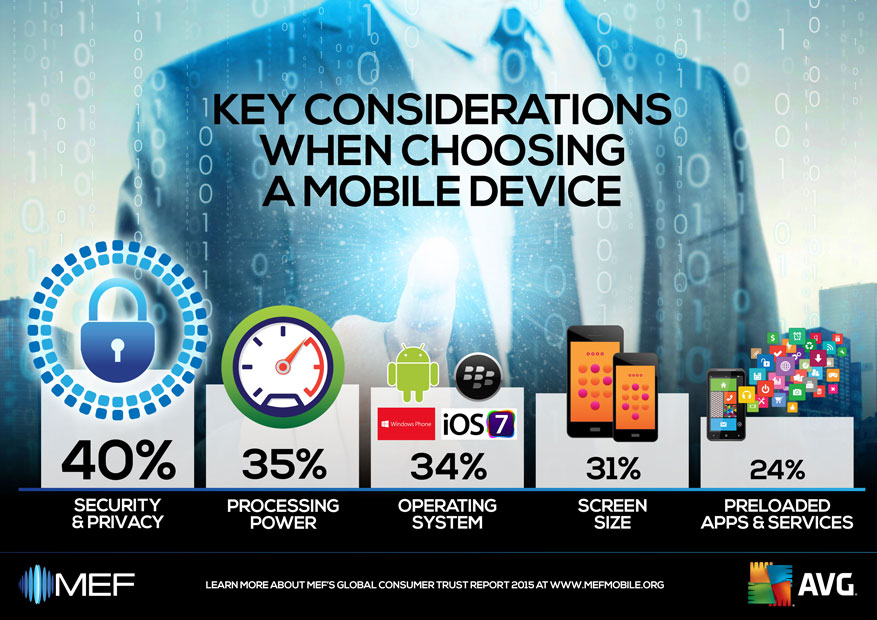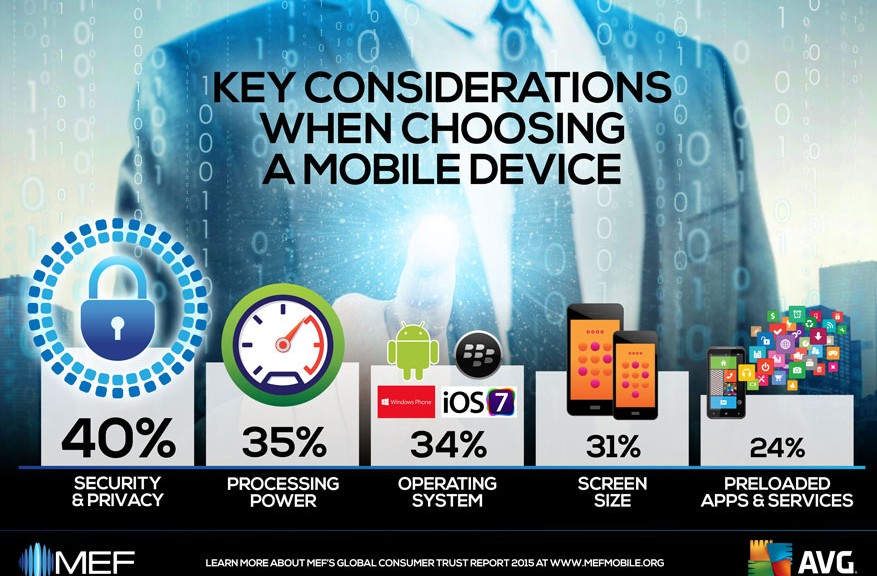2014 was the biggest year to date for security and privacy online. With high profile companies announcing security breaches and data hacks throughout the year, 2014 became a year of lost innocence for the web.
People around the globe have begun to realize that their data, once shared with the World Wide Web, takes on a life of its own.
Because of this, trust and privacy have become more important than ever to our digital lives. Trusting people with our data and keeping hold of our privacy have become real every day concerns.
Nowhere is this more relevant than in mobile. And mobile devices are increasingly the gateway for most of us in the connected world.
The importance of trust and the relevance of mobile are why this year; we have once again collaborated with MEF to create the Global Consumer Trust Report 2015.
Here are two key points that I’d like you to take away from the report:
Trust is a growing concern
Last year, the report highlighted the growing issue of trust as a barrier to purchase on mobile devices and this year is no different.
- A lack of trust is again the single most influential factor preventing more downloads and purchases via mobile. 34% named it as such as compared to 30% the previous year.
It won’t come as any surprise after the multitude of hacks we saw in 2014, that awareness and concern around data privacy and trust is up around the globe.
- China reported the highest trust concerns at 41% and the US saw the largest increase in a lack of trust, up nine points year-on-year to 35%
Trust really does affect people’s behavior
Trust is such a difficult concept to understand, especially when it is concerning something as abstract as the Internet. How do you know if you trust an app? Moreover, how does that trust actually influence your behavior?
This year’s report shows that trust, or lack thereof, really does have an impact (and a growing one at that) on how we engage with apps and services on our devices.
- 49% of consumers surveyed say a lack of trust limits the amount of apps they download or use compared to 37% in the previous year
- 72% of mobile media users are uncomfortable sharing personal data such as location or contact details with apps.
It’s also great to see that, in the report, 64% of those studied use software or apps to guard passwords and protect against malware. Only one in ten (11%) take no steps to protect their device.

We still have a long way to go to ensure that the web is a safe and trustworthy place for everyone, including the next wave of digital citizens coming on line, but we are making progress.
The issues of trust and privacy are starting to come to the fore and with them, they will bring change.
We’ll see changes in the way that users behave online, changes in the way that businesses explain how they use our data and changes in the way that governments form new modern data laws.
Nevertheless, with change comes responsibility. We must all play our own role in forging a brighter, safer and more trustworthy Internet. We must all become responsible digital citizens.
